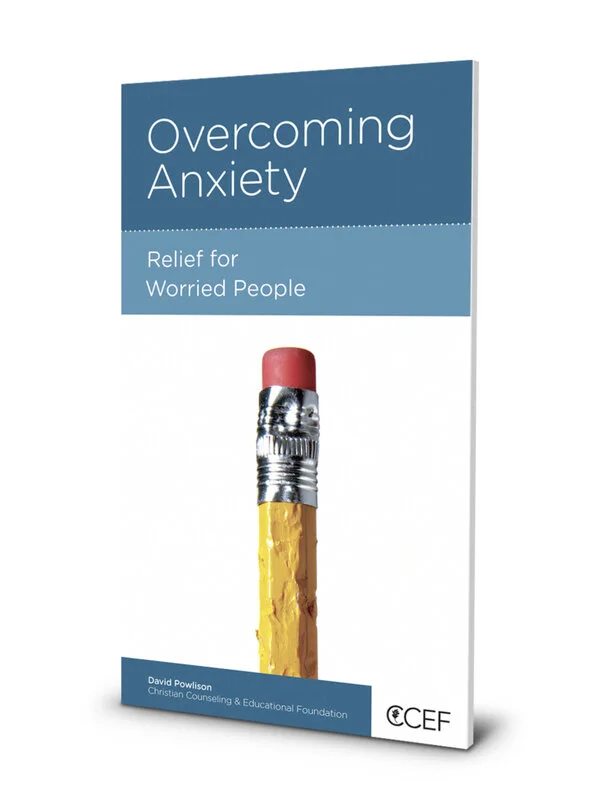Powlison’s booklet is the best starting point for people trying to understand their anxiety. It is published by New Growth Press, is only 16 pages, and can be downloaded to Kindle. The booklet is a readable summary of the problem of anxiety as well as how the gospel is the solution.
He begins by explaining there is “a right kind of anxiety that leads us to express loving concern for others in the midst of their trouble.” There are also a number of valid reasons to be anxious. However, anxiety can become a problem, even sinful, when we overreact to legitimate problems and become too upset about troubles. Powlison summarizes, “In every situation where you feel sinfully anxious, you believe something is threatening your world. Your world feels out of control; you are afraid something bad might happen; and you are trying to control your world to keep bad things from taking place.”
Faith in God is the solution when we are anxious. Powilson explains, “When we lose sight of God, we try to control our world on our own, and become filled with worry.” But, the solution is that “God wants us to know him so intimately and trust him so completely that our desire to fix our troubles in our own way will no longer consume us.” A helpful verse when we are anxious is Psalm 94:19, “When my anxious thoughts multiply within me, your consolations delight my soul.”
Powilson then takes the reader to Philippians 4:5-7 in order to highlight some key truths to believe when we are anxious. First, the Lord is near (Philippians 4:5). He explains, “When you know that Jesus is near, the worried, obsessed, sinful anxiety dissipates.” Second, the Lord is listening (Philippians 4:6). Third, the Lord is guarding you with his peace (Philippians 4:7). Believing these truths leads to the opposite of anxiety which is contentment.
Powlison closes with some practical tips including making your request known to God, parking your mind on what you know is true, tackling the real problem the right way, and understanding your anxiety attacks. He also addresses the question of whether people should take medication when they are anxious. He explains that anxiety medication alleviates symptoms, but does not address the underlying problem. This does not mean he advocates not taking the medicine because they can help someone calm down. However, medicine should not replace “the hard work of learning to trust God and depend upon him.”
If you are struggling with anxiety, grab Powilson’s booklet and hear his closing encouragement, “Take a step of faith, and decide today to go to God with your anxiety. He will not disappoint you.”

